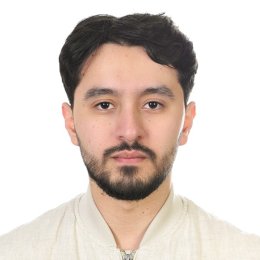The University of Twente has various partnerships for education and research in different fields, including with Mexican institutions such as Tecnológico de Monterrey (TEC). One of these agreements involves the Erasmus+ programme, specifically the KA107 (Key Action) action line, now known as KA171.
This programme is intended to promote the exchange of students, academics, and staff between European and non-European countries in the field of education. This contributes to strengthening the European education and research space. The collaboration with TEC, for example, involves mobility in the field of Health Sciences and technological solutions and applications in healthcare, but also UT-wide student exchange at the bachelor's and PhD levels.
How does the KA107 programme work?
The KA107 programme is based on four important areas, namely digitisation, sustainability, inclusivity, and social engagement. One of the program’s unique features is that it is not limited to European countries. Students and staff from Higher Education institutions from non-Erasmus+ associated countries, such as Mexico in this case, can also participate in this programme. This Erasmus+ scholarship includes an individual allowance and travel budget, and participants have the opportunity to study or work at UT for several months or even a full academic year. This gives them access to a wide range of academic courses and research opportunities, as well as the opportunity to experience Dutch culture and explore the beauty of the Netherlands.
To qualify for this scholarship, students and staff must first be selected and nominated by Arturo Sussarey Arce, Project Co-ordinator at UT in collaboration with the Project Co-ordinator of Tecnológico de Monterrey (TEC-MTY). The impact the participant aims to have on the respective project is also taken into account.
The programme offers UT and TEC a way to strengthen and broaden the profile of the institution in terms of internationalisation. In addition, the experience students gain abroad is in line with UT study programmes. The goal is for at least 75% of bachelor's students to gain international experience during their studies and for academic staff to have at least one international experience in each 3-year period in their UT career.
Benefits and challenges
One of the main benefits of this programme is that it offers a chance for the Netherlands to acquire knowledge in the field of healthcare. For example in the context of cooperation with various transnational medical (research) centres and educational institutions in the national interest, and making education widely available through a broad education offer in health.
At an individual level, we also see benefits, such as the impact of proposing complex solutions that encompass both the Dutch and the international context. This international context makes solutions scalable, such that solutions formed in a national context can also apply to a transnational context or regional context. Furthermore, expanding personal and professional networks and gaining experience in soft and intercultural skills is advantageous for the participants’ future careers.
However, the Erasmus+ programme also faces challenges, as the programme is subject to European and national developments. For example, the war in Ukraine has had an impact on UT projects. Unfortunately, many of the mobilities involved young men who are now unable to leave Ukraine easily. Furthermore, housing is also a challenge for KA107 projects. As trends in available housing become clearer in management data, more tailored advice can be given on planned mobilities, for example, at times when there is definitely housing available. This ensures that students have a comfortable stay.
Miranda Bönhke is a dedicated Erasmus+ co-ordinator for the Scholarship Office International Relations and Partnerships at the University of Twente. She plays a crucial role in connecting students and staff with exchange programmes, such as the KA107 Key Action programme of Erasmus+. She is the link between the National Agency Erasmus+ and UT and is responsible for, among other things, submitting and implementing KA1 subsidy applications within UT.
EXPERIENCE OF CRISTIAN WITH KA107 PROGRAMME AND UT
Several S&T students and staff have already taken advantage of the KA107 programme. One of them is Cristian Rosero, a participant in the double degree PhD programme at S&T-MCS as of June 2022. He is originally from Colombia and is motivated to continue his studies here because of the opportunity to gain international experience and work with research groups on interesting projects within UT.
He advises future students to have good references to find a place to live quickly. Unlike Mexico or other countries, some rental properties here require other residents to "accept" you, and that process can significantly extend the time it takes to find a place, so it is something to consider. Cristian: "One cultural difference I noticed was the sense of humour. That is different in every country. Of course, I feel more comfortable with people who, like me, come from Latin America and share the same humour." Cristian states that overall, this international experience has been great. This collaboration allows him to successfully carry out an interesting project and make his PhD possible.
In short, the KA107 programme is an excellent opportunity for academic exchange students from Mexico to expand their knowledge, broaden their horizons, and gain valuable experience in an international academic environment. S&T is proud to participate in this programme and looks forward to welcoming more exchange students in the future.
More information
For students who are interested in studying abroad, the event 'Let's GO Study Abroad Fair' will be organised again in autumn. There, students can gain inspiration for their international adventure.








